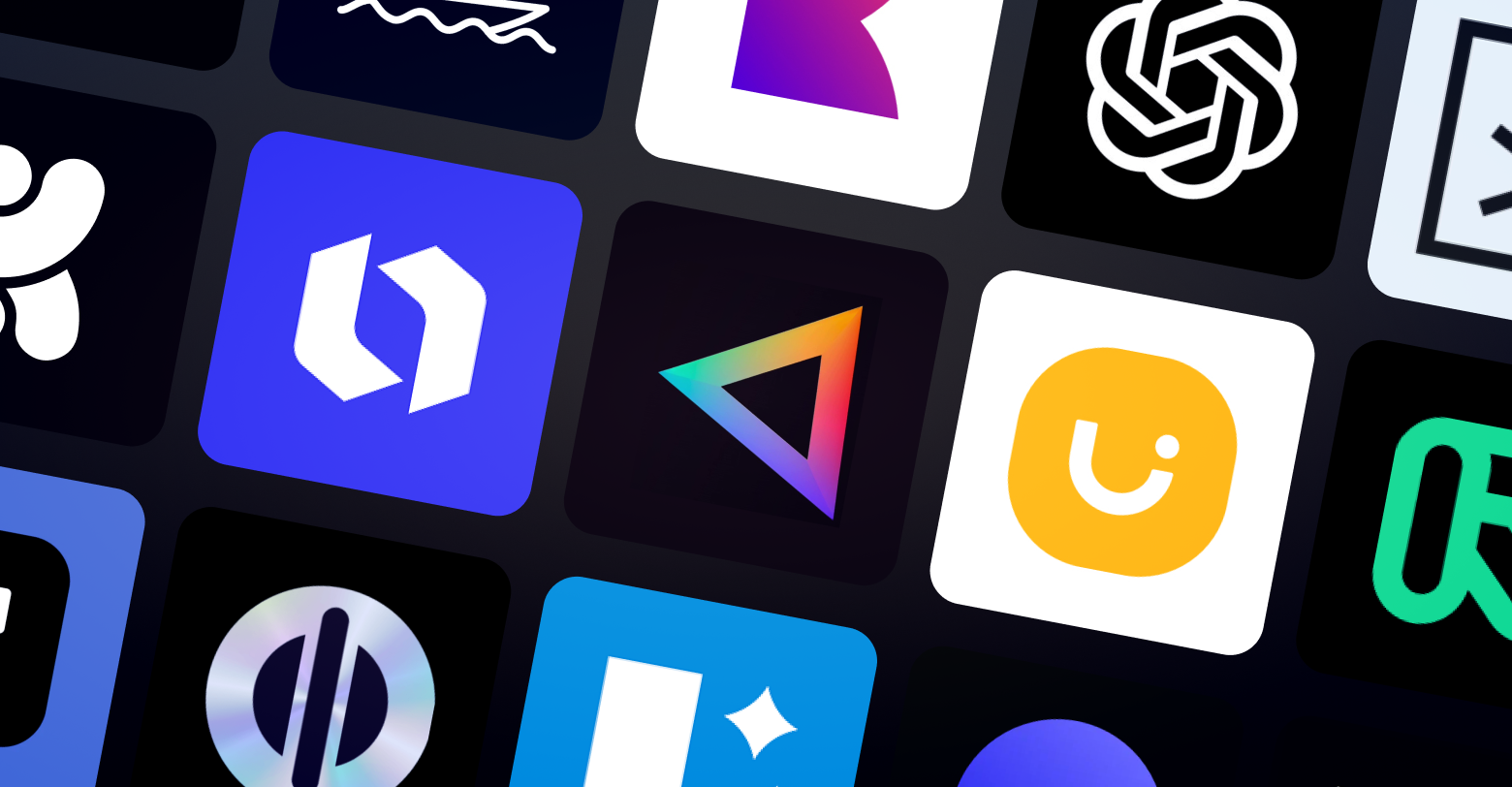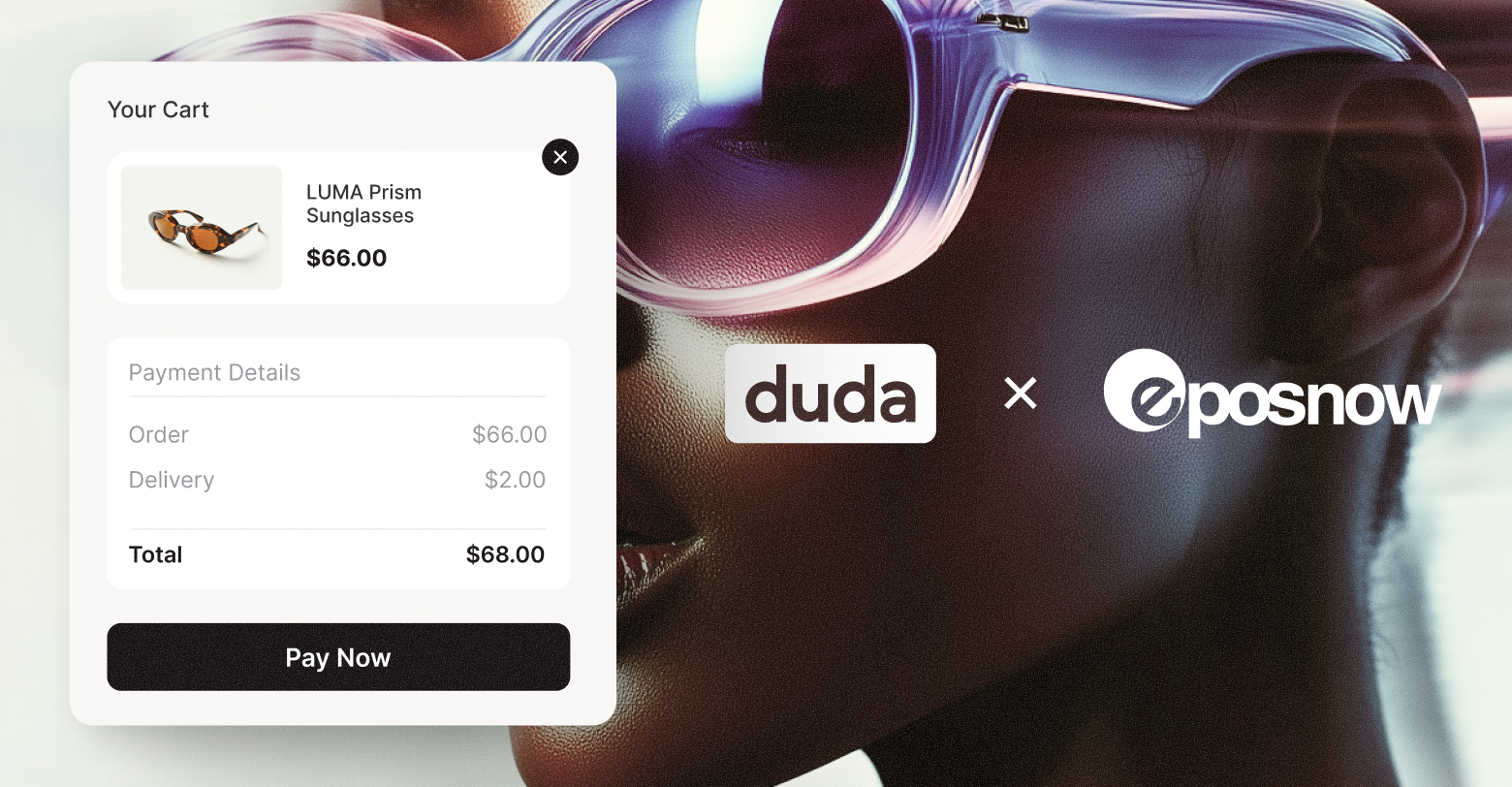Let's face it—you have a lot on your plate.
As a
marketing agency owner, not only are you responsible for the success of your own business, but also that of your clients.
This unique challenge causes many agencies to skip out on some of the marketing efforts that make their clients successful in the pursuit of more “pressing” tasks.
The result? Haphazard growth, an ineffective strategy, and unfulfilling results.
But it doesn’t have to be this way.
With the right marketing automation tools, you can streamline your workflow and free up more time to focus on tasks that actually drive growth for your agency—and your clients will reap the benefits as well.
Why Use Marketing Automation for Your Agency?
76% of companies already use automation for at least some of their marketing tasks. That’s because marketing automation has been proven to:
- Drive higher engagement rates by personalizing the customer experience.
- Create more efficient marketing processes through the elimination of repetitive tasks.
- Reduce human errors that disrupt campaigns.
- Nurture leads with automated follow-up and lead scoring.
- Increase website visits and conversions by automating lead generation.
Beyond that, agencies can use marketing automation to streamline client reporting, build stronger relationships with leads, and market more effectively to the right audiences—all while saving time and money.
On the client side, the benefits of marketing automation are equally impressive. Marketing automation solutions provide immediate feedback on campaigns, allowing for faster decisions and more accurate tracking of important website KPIs and campaign performance metrics.
What to Consider When Choosing a Marketing Automation Software
With so many marketing automation tools on the market, it can be difficult to know which one is best for your agency.
When shopping around for a tool, here are some important considerations:
- Ease of Use:
A powerful tool is only useful if you and your marketing team can actually use it. Make sure that any software you choose is intuitive and user-friendly so you can quickly access the features you need.
- Cost:
You don’t want to break the bank when it comes to software, but keep in mind that more features generally come with a higher price tag. Be sure to evaluate the cost versus the value of each tool and make sure it fits within your budget.
- Support:
No matter how intuitive a tool is, you’re going to need help from time to time. Make sure the software you choose has responsive customer support and an active user community that can help you troubleshoot when needed.
- The Right Suite of Features: Even "all-in-one" platforms may not have the features you need for a successful automation strategy. And some will have too many or too little. To ensure you get the most out of your chosen software, you'll need to carefully evaluate the features available and make sure they suit your particular needs.
- System Integration:
These days, most software integrates with each other, and there are even automation platforms that do just that. But it’s important to remember that not all software will perform its best with your current stack due to certain corporate partnerships or technical limitations, so make sure you research which platforms work best with each other before making a commitment.
Marketing Tasks Your Agency Can Automate
Once you've chosen your marketing automation software, you can automate numerous tasks to maximize agency efficiency. Here are just a few:
- Lead Generation & Qualification:
Automatically generate leads from multiple sources and qualify them based on specific criteria.
- Customer Relationship Management:
Automate processes like lead scoring and segmentation to gain deeper insights into customers and their preferences.
- Email Marketing:
Set up automated email campaigns to nurture leads and convert prospects into customers. Use email templates and automations to quickly send out emails that are tailored for each individual user.
- Social Media Management: Schedule posts in advance, track engagement and performance, and take advantage of advanced analytics to measure ROI.
- Advertising & Retargeting:
Set up campaigns that target specific users at the right time with the right message.
- Customer Service & Support: Use bots and automation to streamline customer service tasks, like responding to inquiries or providing help with technical issues.
- Analytics & Reporting:
Analyze data from multiple sources and generate marketing reports to get a better understanding of what's working and what needs improvement.
There are also numerous repetitive tasks that agency owners can automate like data entry, customer onboarding, and email list management. And beyond marketing, you can automate your bookkeeping, compliance, legal, and HR tasks, helping both you and your employees get more done in less time.
When to Use Marketing Automation (and When Not To)
Clearly, there are plenty of times to use automation. But don't get us wrong—there are some things that will always need your human touch.
Always use automation when:
- You need to quickly and accurately generate leads, send emails, or manage social media.
- You can save time by automating repetitive tasks.
- You have to generate comprehensive reports for your clients.
- You want to use data-driven insights to improve your marketing strategies.
- You need to distribute marketing materials across multiple platforms at scale.
Since these activities don't require a lot of creativity, automation can take over and allow you to focus on more important tasks.
Don’t use automation when:
- You need to make a personal connection with a customer or prospect.
- You’re dealing with a complex or sensitive issue.
- You're building trust and loyalty with your audience.
- You're creating content, brand messaging, or marketing campaigns from scratch.
As a general rule of thumb: Keep the emotional and creative elements of your marketing human, and use automation to streamline the rest.
Tips for Developing an Agency Marketing Automation Strategy
Developing your own agency-specific marketing automation strategy can be a daunting task. Here are some tips to get you started:
- Start with an audit of your current tech stack, then identify areas where automation could be beneficial.
- Find a software platform (you can use the list below) that suits your budget, business size, and overall needs, then test it with your team.
- Set up clear goals and objectives for each campaign, and make sure your team is prepared for any potential roadblocks.
- Use A/B testing to see which strategies and tactics yield the best results.
- Invest in quality monitoring and analytics tools to track performance and customer engagement metrics.
- Stay up-to-date on the latest marketing trends for agencies so you can adjust your strategy accordingly.
The Best Marketing Automation Tools for Agency Owners & Employees
Now that you know what to look for in software, here are some of the best marketing automation tools on the market:
If you're a marketer, you're a HubSpot fan. You read their annual reports, take their blog content to heart, and revel in their massive suite of free resources. With HubSpot, you get all the bells and whistles at every stage of the marketing funnel.
For the smallest of small businesses, HubSpot is free—but the impressive range of features quickly expands as you grow. Basic users can access email marketing, ad management, live chat, reporting dashboards, API integrations, and a simple CRM that gets the job done if you have just a few clients and inbound leads.
Once you spend the $45/month, you get full email automation, custom landing pages, and a more powerful CRM for managing conversations and lead nurturing (among tons of other great features).
For scaled agencies and enterprise businesses, HubSpot offers omnichannel marketing automation, contact and company scoring, ABM tools, A/B testing, and custom solutions.
Salesforce is the enterprise solution for large and midsize businesses looking for the robust functionality of a CRM and integrated sales, marketing, service, and commerce programs.
Salesforce provides one platform to manage customer relationships across multiple channels and customer touchpoints.
You can use Salesforce to:
- Create lead scoring models
- Track website visitors
- Collect data on customer behavior
- Run email campaigns
- Store custom data fields
You can also use Salesforce to centrally manage your partners, affiliates, and resellers, streamlining customer service operations ensuring an integrated customer experience across channels. Plus, features like event management, social media monitoring, and analytics dashboards help you better understand customer engagement.
Companies of all sizes use Salesforce—but because it's so customizable, it is best for scaled agencies that have the IT infrastructure to manage multiple users and complex workflows. Still, familiarizing yourself with the platform will help you work on campaigns for your clients, some of whom will definitely use it.
SharpSpring is an all-in-one tool that takes "personalization at scale" to a whole new level—its robust features for personalizing messages, automating the creation of forms and landing pages with templates, and setting up drip campaigns drive conversion rates through the roof.
SharpSpring's features for marketing automation include:
- Detailed contact segmentation and targeting
- A/B testing for campaigns
- Content marketing automation for blogs
- Integrated analytics and reporting tools
- User-friendly design to make your campaigns look great
- Integrations with apps through APIs and Zapier connections
What's great about SharpSpring is that it's fully scalable and customizable—from startups to enterprise-level businesses. Plus, agencies get special pricing discounts, allowing them to maximize their revenue per customer.
Built for small businesses, BenchmarkONE is one of the most user-friendly and affordable marketing tools out there. It offers a range of features, including drag-and-drop email design, simple list segmentation, eCommerce integrations like Shopify and PayPal, landing page and popup design, and lead tracking.
For agencies, BenchmarkONE offers specialized pricing plans to accommodate your needs. Plus, with its comprehensive reporting features, you can easily monitor your campaigns and gain insight into what's working (and what isn't).
Pardot is part of the Salesforce family designed for account-based marketing (ABM). An ABM strategy consists of personalizing campaigns on an account level to target the right decision-makers with tailored messaging.
With access to detailed company profiles, Pardot gives agencies powerful insights into customer behavior that they can use to create targeted marketing campaigns. And just like the other tools on this list, it integrates with existing CRMs and other marketing tools for a seamless customer experience.
Act-On offers many of the same features as other marketing automation providers. Agencies that use the platform can gather valuable customer data, nurture customers, and deliver individualized brand experiences by using adaptive forms and landing page templates that are optimized to capture info.
What makes Act-On different is its pricing—the company uses a flexible pricing model, meaning that you can pay based on the number of contacts, rather than a flat rate. This makes Act-On an excellent choice for agencies who are just getting started with marketing automation and don't want to commit to a long-term contract.
GetResponse is no longer merely an email marketing platform—it has become a feature-rich tool for all your marketing activities. Its unique drag-and-drop menu allows users to quickly set up workflows based on three key components—conditions, actions, and filters —without hassle.
The software makes scaling your business a breeze with its limitless scalability. Whether you're expanding or downsizing quickly, it provides the same services. It works perfectly for eCommerce sales and comes complete with an easy-to-use landing page builder tool as well as detailed video tutorials to help guide you along the way.
The best part? This company offers a comprehensive marketing automation bundle, including webinars and customer assistance, at a reasonable price of only $44 per month.
Most marketers know what MailChimp is—it's the world's most popular email marketing platform. If you don’t already have it in your tech stack, you’ve almost certainly used it before. And your agency employees are probably well-versed in its platform already.
Its best features include:
- Intuitive automation workflows
- Segmentation capabilities
- A/B testing tools
- Analytics and reporting
- Integrations with other platforms such as Shopify, WordPress, and Magento
What makes MailChimp great for agencies is the fact that it's free to use (at the lowest scale), so you can try it before you buy. And even if you need to use it several times a day for numerous clients, it's still among the most affordable tools on the market.
Marketo (now part of Adobe's product offerings) is an ABM platform that offers advanced analytics, detailed customer segmentation, personalization capabilities and automated campaigns.
Its four main features include:
- B2B Marketing Automation: Automated campaigns and lead management tools
- Email Marketing:
Create customized emails with templates
- Lead Management: Lead qualification and nurturing
- Revenue Attribution:
See the impact of marketing efforts on revenue
Marketo optimizes the effectiveness of lead management with campaign cloning across all of your channels. It also comes with a comprehensive suite of support, from onboarding and training to hands-on professional services and technical assistance.
One of the biggest names in marketing automation, Marketo is a great choice for larger agencies that need the advanced features and scalability it provides.
ActiveCampaign is a robust CRM platform built for marketing and sales teams, eCommerce brands, and—of course—agencies. As a customer, you can use ActiveCampaigns lead management and CRM functionalities to keep your employees on the same page. But as an agency partner, you can also use the platform to create custom solutions for your clients.
This platform uses machine learning and AI to help you create more personalized customer experiences. Plus, with its comprehensive suite of automation tools, you can create lead-scoring and funnel-building workflows. And because it integrates with most platforms, you can use ActiveCampaign with just about any existing tech stack.
AutoPilot is a name well-suited to this visual-based automation platform. It helps you create interactive and personalized customer journeys quickly, by using the drag-and-drop interface to customize workflows in a matter of minutes.
For agencies, its template builder is a critical tool that makes designing email campaigns and landing pages easy. And with its personalization features and all-in-one customer engagement platform, you can create experiences that turn buyers into loyal customers.
AutoPilot is best for agencies that use multiple marketing channels in their strategy and prioritize communication and relationship building over demand gen and lead generation tactics.
Through SMS marketing, email marketing, segmentation, automated push notifications, and global campaigns through WhatsApp, SendInBlue has just about every marketer's dream toolkit in one place. Since it cleverly utilizes SMS and mobile marketing techniques, it's best for agencies that work with
ecommerce brands, retailers, and mobile app companies.
It's also great for small businesses as it offers a free plan with up to 300 emails per day. With its intuitive dashboard, you can access and manage data from multiple sources in one place—making marketing campaigns more efficient and effortless.
Platformly's sales CRM, customer engagement, and data reporting tools help SaaS companies scale just as well as they help ecommerce brands sell more. For small businesses, it offers a straightforward platform that is easy to use and requires little maintenance.
For agencies, Platformly's automation builder enables account managers to leave notes for clients, create personalized customer paths, and track performance with ease. Plus, it integrates with popular CRM tools like Salesforce and HubSpot so you can always keep your data up to date in one place.
Final Thoughts on Marketing Automation for Agencies
Marketing automation and marketing agencies go hand in hand.
It help agencies
build strong client relationships, deliver value to existing customers, and connect with new ones.
Not to mention the usage of such tools for their clients.
The exact marketing automation tools you choose for your agency depend on various factors, such as budget and customer needs.
While there are plenty of options to choose from—including the 13 mentioned in this article—it's important to do your research before committing to one platform.
By Stephen Alemar
•
February 27, 2026
Duda is the perfect all-in-one platform for freelance web designers, offering white label, AI tools, and comprehensive security to efficiently scale their business and manage client websites.
By Renana Dar
•
February 23, 2026
Discover how AI design tools can boost your agency’s efficiency, streamline your design process, and help you deliver high-quality work faster. Explore top AI-powered design tools available now.
By María Vincenzini
•
February 17, 2026
Compare leading tools like Aspire, Influencer Hero, Upfluence, Traackr, and CreatorIQ. See how top platforms help agencies and brands streamline creator outreach, manage campaigns at scale, track affiliates, and prove ROI with real performance data.
Show More









